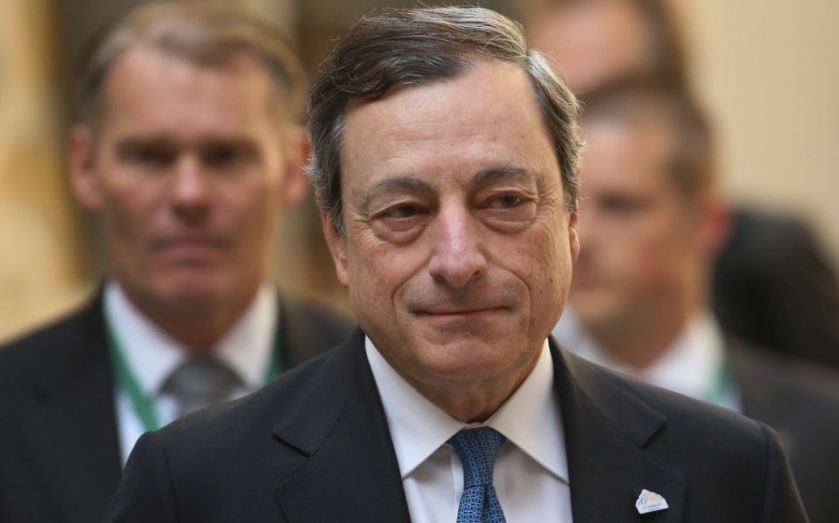As the ECB’s governing council prepares to meet later this week, is further QE now imperative?

Jonathan Loynes, chief European economist at Capital Economics, says Yes.
The case for additional policy easing from the European Central Bank at its December policy meeting is extremely compelling. Yes, the full effects of the existing asset purchase programme have not yet been seen. And the recent news on the economy has improved a bit.
But the big picture is that growth is far too slow to eat into the spare capacity in the economy and hence quickly push inflation back up towards the ECB’s near 2 per cent target. And the longer inflation remains low, the greater the risk of a Japanese-style deflationary spiral.
The ECB’s current policy stance is not powerful enough to change that picture. So the governing council should follow up its recent very dovish words with action and implement bolder stimulus, consisting both of faster asset purchases and lower interest rates.
A failure to do so would come as a major disappointment and threaten to unwind the recent helpful decline in the euro.
Chris Bailey, European strategist at Raymond James, says No.
In a financial market backdrop where German sovereign bonds offer negative yields for durations of up to seven years, and the European Central Bank’s QE programme is yet to reach the halfway point of its implementation, it is certainly not imperative that further policy is required.
To couch the discussion in simple economic terms, the issue is not the supply of cheap credit but a lack of demand. In another economic era, the legendary economist John Maynard Keynes likened the limitations of such a policy as “pushing on a piece of string”.
Today is very similar. Europe’s problems are a lack of regional demand and a lack of regional dynamism and neither will be solved by further policy easing alone. Real policy making guts in Europe would focus on deregulation, encouraging entrepreneurism, business investment and job creation. A more competitive Europe would not need further easing.
Exhorting national governments to heighten their focus on this should be the major message from the ECB, which cannot continue to try to bail out the Eurozone economy alone.